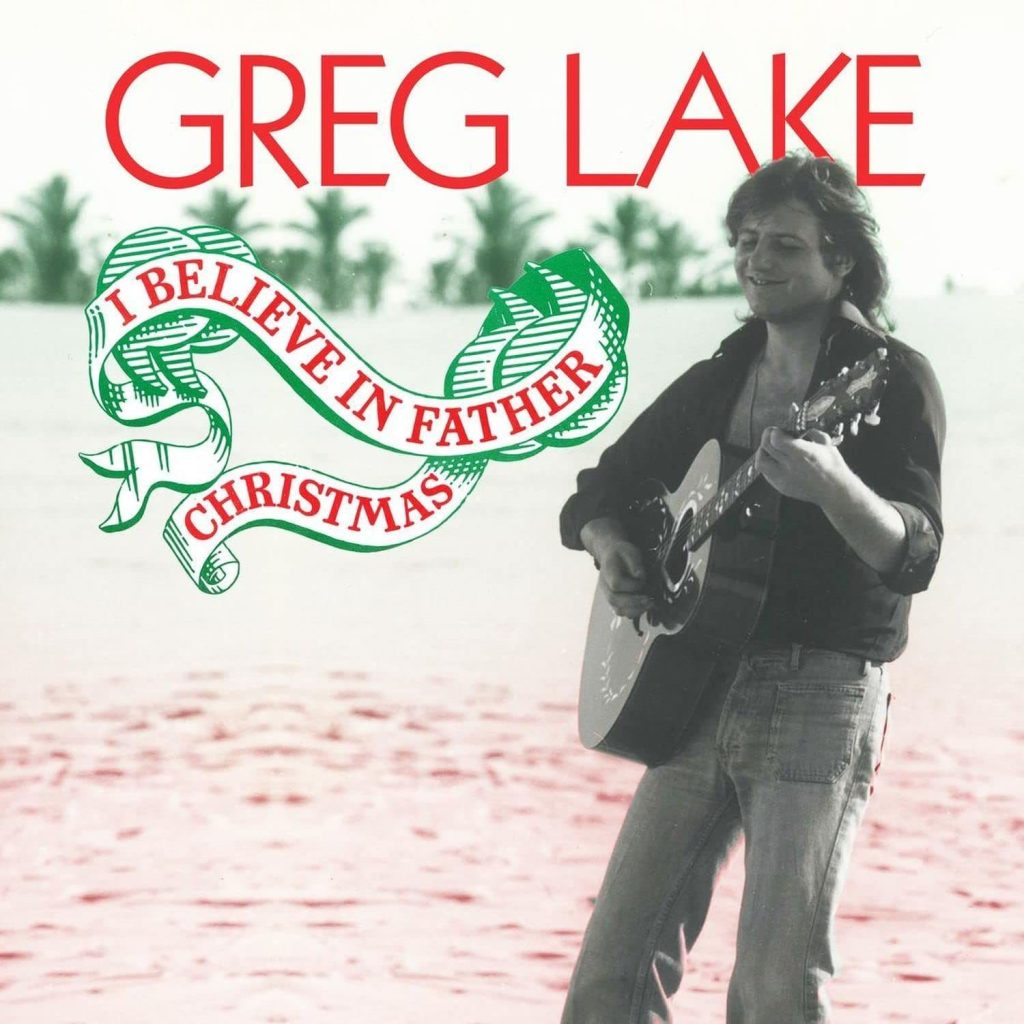
A Poignant Meditation on Lost Innocence and the True Meaning of Christmas
“I Believe in Father Christmas” by Greg Lake is a timeless holiday classic that transcends the conventions of festive music. Released in 1975 as a standalone single, the song blends stunning acoustic instrumentation, evocative lyrics, and a haunting orchestral backdrop to deliver a profound commentary on the commercialization of Christmas and the bittersweet loss of childhood innocence. It reached number two on the UK Singles Chart, narrowly missing the top spot during the fiercely competitive holiday season.
From the first shimmering notes of Lake’s acoustic guitar, the song feels like a winter’s reverie, inviting listeners into a world that is both nostalgic and introspective. Lake’s vocals, tender yet resolute, set a contemplative tone as he delivers the opening line, “They said there’d be snow at Christmas.” The imagery evokes a yearning for the idyllic Christmases of childhood, filled with wonder and magic, before the realities of life began to seep in.
The song’s lyrics, co-written by Lake and lyricist Peter Sinfield, unfold as a reflection on the contrast between the idealized visions of Christmas and the stark reality of modern life. Lines like “They sold me a dream of Christmas / They sold me a Silent Night” capture the disillusionment many feel as they grow older, realizing that the holiday has been co-opted by consumerism and hollow traditions. Yet, the song is not without hope. Its refrain, “I believe in Father Christmas,” becomes a declaration of faith in the enduring power of the holiday spirit to inspire generosity, love, and peace.
Musically, the track is a masterpiece of contrasts. The gentle acoustic verses, accompanied by soft strings and bell-like tones, evoke a sense of quiet introspection. This is juxtaposed with the stirring orchestral interludes, including a dramatic adaptation of Sergei Prokofiev’s “Troika”, which lends the song a sweeping, cinematic quality. These shifts in mood mirror the song’s dual themes of innocence and cynicism, creating a rich, emotionally resonant experience.
Interestingly, Lake did not intend for the song to be seen purely as a Christmas anthem. In his own words, it was meant as a protest against the commercialization of the holiday and an exploration of its deeper meaning. Despite this, or perhaps because of it, the song has become an enduring part of the holiday canon, beloved for its sincerity and depth.
The song’s release during the 1970s—a decade marked by political and economic turmoil—added an additional layer of poignancy to its message. In a world grappling with uncertainty, “I Believe in Father Christmas” offered a moment of reflection, urging listeners to seek meaning beyond materialism and rediscover the simple joys of the season.
Over the years, the song has been embraced as a modern Christmas classic, its message resonating with those who long for a holiday that is less about consumerism and more about connection and authenticity. Its timeless appeal lies in its ability to balance melancholy with hope, cynicism with wonder, and personal introspection with universal truths.
Whether it’s heard around a crackling fire, playing softly in the background of a quiet winter evening, or shared during moments of reflection with loved ones, “I Believe in Father Christmas” endures as a reminder of what the season is truly about. It is a song that invites us to look beyond the glittering facades and find something deeper—something that speaks to the childlike wonder still lingering in all of us.